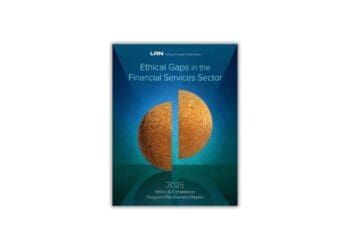International investment brings regulatory scrutiny, even for small stakeholders abroad. Mayer Brown attorneys Matthew Bisanz and Kerri Webb break down the Bureau of Economic Analysis’ comprehensive BE-10 survey, a mandatory filing for any US entity holding at least 10% voting interest in foreign businesses during 2024. This once-every-five-years reporting requirement applies universally — regardless of size or profitability — with deadlines approaching in May and June 2025.
American businesses with foreign investments are facing a looming deadline to report to Washington. The Commerce Department’s Bureau of Economic Analysis (BEA) is once again issuing its comprehensive BE-10 survey, a once-every-five-years deep dive into how US capital flows abroad.
The clock is ticking for any US entity that held at least 10% voting stake in a foreign business during its 2024 fiscal year. These companies must file by May 30 or June 30, depending on their circumstances — whether they’ve been contacted by the government or not.
Background
The BEA collects information about and conducts research and analysis on the US economy, which it uses to produce data and statistics for governmental and public use. One of the topics researched and studied by BEA is cross-border business with US entities. Specifically, one of the broad sets of statistics published by BEA is on the scale and effects of US-owned business activities abroad. To develop these statistics, BEA requires US persons that fully or partially own or control an incorporated foreign business enterprise to make certain filings. BEA’s authority to impose the reporting requirements comes from the International Investment and Trade Services Survey Act and its implementing regulations.
These reporting requirements include transactions where a foreign parent establishes, acquires or expands a presence in the US, transactions between a US affiliate and its foreign affiliate group and financial and operating data of US affiliates. Penalties for failing to make required filings can be significant, as they include both civil and criminal penalties as well as imprisonment.
There are several major BEA filings relevant to a US business enterprise with a foreign parent. One is the BE-13, which US business enterprises must make when a new foreign direct investment relationship is created or an existing US affiliate of a foreign parent establishes a new US legal entity, expands its US operations or acquires a US business enterprise. Another filing is the BE-577, which is a quarterly survey of US direct investment abroad. Certain US businesses that have one or more foreign affiliates may also be required to file the annual BE-11 survey. Business enterprises required to file the BE-577 or BE-11 are contacted by BEA to file.
TD’s Ethical Deficit: Banking on Consumer Apathy in the Culture War Era
Scandal underscores need for renewed focus on ethics education
Read moreDetailsThe BE-10 benchmark survey
Every five years, the BEA conducts the BE-10 benchmark survey in lieu of the BE-11 annual survey. The BE-10 survey is BEA’s most comprehensive survey on financial and operating data of US multinational enterprises and their foreign affiliates. This year, the survey requests data pertaining to the reporter’s fiscal year ending in 2024. BEA uses the data from the BE-10 survey to produce statistics on the scale and effects of US-owned business activities abroad.
Generally, the BE-10 survey requests information about both the US reporter and the foreign affiliate, including the ownership (including the identity of the US owner and other owners of the foreign affiliate), industry classification, total sales, employees, exports, imports and size. In addition, the US reporter and the foreign affiliate must report on select financial and operating data.
Business enterprises may need to calculate or recalculate the requested data based on BEA’s specifications. There are also special reporting requirements for banking and insurance industry activities. Under the International Investment and Trade in Services Survey Act, the information business enterprises report is confidential, even as to other government agencies.
What’s required
There are a range of BE-10 forms. The exact BE-10 form that a business enterprise must file depends on the business’s attributes:
- BE-10A: Filed by all entities required to report for the fully consolidated US domestic business enterprise. (Defined as the US business enterprise whose voting securities are not owned by more than 50% of another US business enterprise and proceeding down each ownership chain from that US business enterprise, any US business enterprise whose voting securities are more than 50% owned by the US business enterprise above it, excluding foreign branches and all other foreign affiliates.)
- BE-10B: Filed by majority-owned foreign affiliates whose assets, sales or net income exceed $80 million.
- BE-10C: Filed by majority-owned foreign affiliates whose assets, sales or net income exceed $25 million but none of these items are greater than $80 million. This form is also filed by minority-owned affiliates whose assets, sales, or net income exceed $25 million.
- BE-10D: Filed by all foreign affiliates whose assets, sales and net income do not exceed $25 million.
- BE-10 Claim for Not Filing: Filed by a US reporter that is contacted by BEA but is not subject to the reporting requirements.
Who must file
Unlike the BE-11 survey, which is required only for the select entities contacted by BEA for further reporting, all persons that held, directly or indirectly, 10% or more of the voting stock of a foreign business at the end of the reporter’s fiscal year ending in 2024 must file the BE-10.
The BEA may, but not necessarily will, individually contact persons that must report. The definition of a US person for reporting purposes is broad and includes individuals and legal entities. The definition of foreign affiliate is also broad and includes foreign unincorporated business enterprises, such as branches, and real estate, in addition to legal entities. Specifically, the filing requirement applies to real estate owned for profit-making purposes (i.e., not held for personal use of a corporation owner or an owner’s primary residence).
Further, there is no minimum asset or revenue threshold for filing. All US persons that held, directly or indirectly, 10% or more of the voting stock of a foreign business at the end of the person’s fiscal year that ended in 2024 must file even if the business was, for example, inactive or had no assets. A US business that is a subsidiary of a foreign entity must file the B-10 if it otherwise meets the requirement, even though it has a foreign parent.
There are a limited number of exemptions that may apply. For one, the reporter can consolidate a group of foreign business enterprises as a single foreign affiliate for reporting purposes if the individual entities are located in the same country; are in the same four-digit international surveys industry classification or are integral parts of the same business operation; and they are owned by the same intermediate parents with the same ownership percentages or one of the business enterprises if wholly owned by the other. Further, certain private funds are exempt from submitting the survey. If an exempt business receives a notification to file from BEA, the enterprise must submit a BE-10 Claim for Not Filing.
When considering whether a foreign person has a 10% or more ownership interest, the interest is based on direct or indirect control of the voting securities of an incorporated foreign business enterprise or an equivalent interest in an unincorporated foreign business enterprise.
Deadlines
For US reporters required to file fewer than 50 forms BE-10B, BE-10C and/or BE-10D, the forms will be due May 30. For US reporters required to file 50 or more forms BE-10B, BE-10C and/or BE-10D, the forms will be due June 30.
Changes since 2020
Last year, BEA published a final rule adding certain and modifying data items on the BE-10 survey. These changes include:
- Adding a question to collect data on employees who are on the payroll of the US reporter but who live overseas on a permanent basis.
- Adding a question to collect equity investment in other foreign affiliates to the BE-10C form, consistent with the BE-10B form.
- Modifying the BE-10B and BE-10C forms to offer more options for the reasons foreign businesses enterprises changed since last reported, such as “acquired” or “established.”
- Expanding a question on advertising sales data to capture additional detail.
- Modifying questions on services provided via digital intermediation platforms and questions on digital delivery and digital ordering to more adequately reflect terminology used by survey respondents and to update definitions.
Conclusion
Persons with ownership interests in foreign entities, including unincorporated businesses and real estate, should evaluate whether they must file a BE-10 report and, if so, discuss the filing requirements with the relevant foreign affiliate(s). Persons who are required to report should work with counsel and accountants to collect information, calculate the data, and begin completing the survey to meet the filing deadline.




 Matthew Bisanz
Matthew Bisanz Kerri Elizabeth Webb
Kerri Elizabeth Webb









